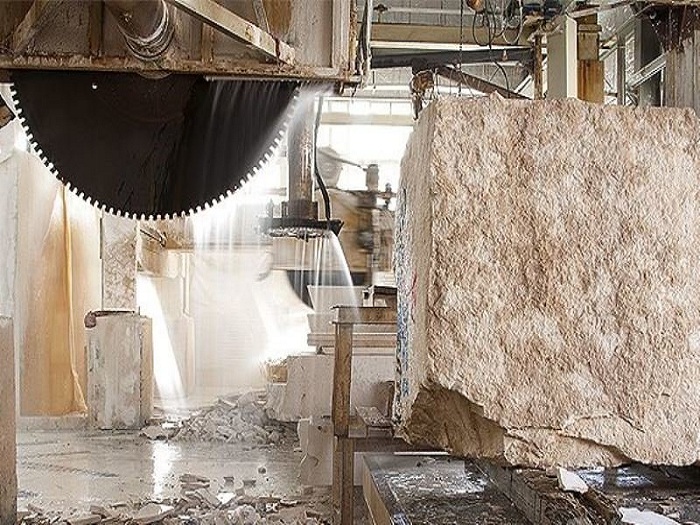It has locked down production stagnation and mismanagement

If the market was a market and the economy was an economy, the VAT law wouldn't be a problem. Wouldn't the income tax have been taken from the Stones? When the manufacturer cannot pay, he protests against this tax.
According to the International Stone Exhibition of Iran, a member of the local Association of Stone Makers described the state of the stone industry as disappointing and said: "We do not currently have a place in global markets and the domestic and foreign market of the stone industry is currently closed.
He added that sanctions, the problem of supply of raw materials, lack of market liquidity, the market for sales, administrative issues have come together to disrupt exports. It is not only the issue of sanctions, of course, that some have exported through specific channels.
Amir Amiri downplayed the amount of exports of stone producers in recent years, saying that a number of intermediaries, rather than producers, have exported through specific channels. Domestic producers had a very low percentage of exports to neighboring countries.
He said, in some cases, the intermediaries would give the raw stone to the factory to process the stone in exchange for the commission, and then export the stone themselves, which would not be much for the factories.
Asked why domestic producers, who do not even have an export approach, are in complete stagnation, Amiri said: "It's the foundation of a construction country." After the housing project, there was little construction in the country. Even the private sector was reluctant to invest in construction. Because housing was not for sale, no project was made.
He added: Housing construction in the last two or two years was limited to personal construction alone. It should be noted, however, that the housing market was at a stage for stone producers to receive housing pills, and then the problem ended.
He said that domestic producers now do not have the stone or the financial viability of production or have room for new ones because they have not yet been able to sell their older products. Then production stops.
Asked how to save the stone industry from bankruptcy, Amiri said: "If there is a will to solve the economic problems completely, just one year after that reform we will see the result in the stone industry."
"I don't see the future as bright," he said. Every change is a move. We're doing what we did six months ago. We have not done anything to bring about change. Next year we will be at the same point.
"Now we should not fool ourselves into not going bankrupt," said a member of the Mahalat Sangharpan Guild. What is the benefit when a factory is operating at twenty or thirty percent of its capacity? The factory has to start work on Saturday and work all week and be serviced one day and continue working again from the first week.
He added: "When a factory works with one machine and two workers only a few hours, it's not production." This is just a game that does not accept bankruptcy. The only hope is to open the doors and open markets if there is anything left of the manufacturing units.
Amir Amiri, in describing the efforts of the Guilds Association to help solve the problems of stone-throwers, said: "All Guild Associations, the Stone Hub, the Stone Society have all been seeking to improve the situation in the last two years. We have also made great efforts in the field of value added tax, which has put a lot of pressure on us, but nothing has happened.
He said VAT is the law and the law is also being implemented. Unless a new law is brought to parliament and repealed. If the market was a market and the economy was an economy, the VAT law would not be a problem. Wouldn't the income tax have been taken from the Stones? When the manufacturer cannot pay, he protests against this tax.










